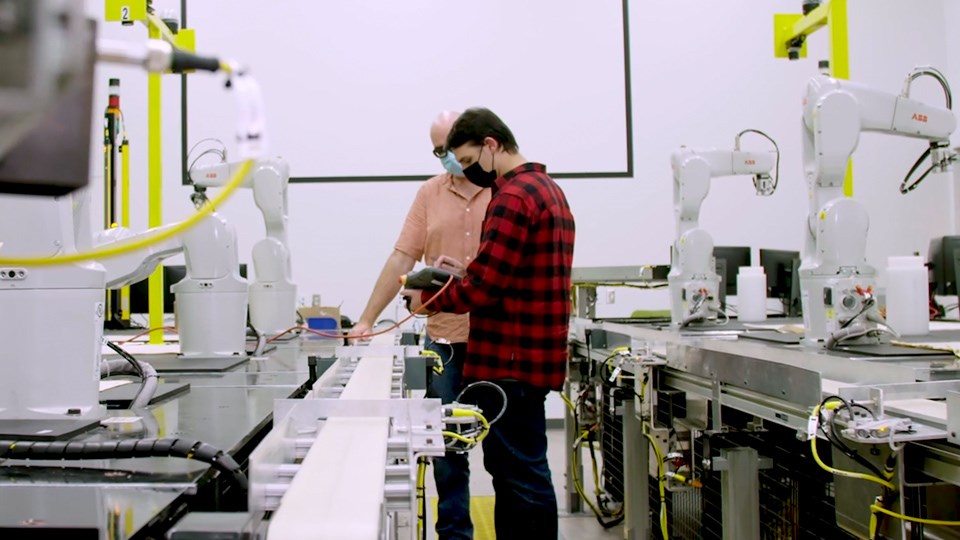Robots are taking over. Sort of.
Advancements in technology allow machines to complete many tasks we as humans were once responsible for. This shift has changed the operational landscape of many businesses and the type of workforce required for them to remain competitive.
With this, postsecondary institutions have had to adapt their programming to help fill the need for skilled workers for what has been coined Industry 4.0 -- the fourth industrial revolution in manufacturing built on increasing connectivity and automation.
Cue Sault College’s newly-developed Bachelor of Engineering - Mechatronics program, a degree program in partnership with Humber College that offers hands-on experience with industry-standard advanced technology.
Sault Ste. Marie is positioned well to introduce programs that align with Industry 4.0, said Colin Kirkwood, Vice-President of Operations at Sault College. Advanced engineering and mechatronics both have become important for economic development in Sault Ste. Marie as two local manufacturing firms contribute greatly to the local economy.
“Both Algoma Steel and Tenaris have supported the project in a variety of ways including financially. Both companies have also been helping us with decisions in regards to which skills graduates need when they emerge from the program and we’ve worked hard to align the content of the program with employer needs.”
These skills include process automation and robotics, which Sault College has already made significant contributions to their robotics laboratories.
Designed for new students and those looking to upskill
Kirkwood said the program is attracting a mix of students. “We have students who may have been in a related college program, for example, the Electrical Process Automation Technician program, and some of those students may choose to bridge into the upper years of the program and get prior learning credit. I know that Humber's approach is the same.”
Employees who work in manufacturing may also choose to take courses to upskill. “Existing employees can benefit not only from the courses but from the advanced facilities and equipment that we’re purchasing to deliver that programming. There are many different benefits for new students, students in a postsecondary program related to the mechatronics program and employees in the local companies looking for upskilling.”
Remote work, pandemic aside
One major benefit of the collaboration between Humber College and Sault College is its alignment with how manufacturing works today - the Mechatronics program can replicate what an engineer would experience in the field. Monitoring equipment enabled by the internet and sensing devices allows engineers to work remotely. Students gain the advantage of working remotely either from Humber College working on equipment at Sault College or vice versa.
The pandemic has accelerated how capable we are of working remotely. However, before the pandemic, Sault College had already taken the steps to adapt to remote learning, says Kirkwood. “Yes, the pandemic did enable the adaptation of these remote technologies, however, we were ready for it regardless of the pandemic.”
“We’ve all learned a lot about working remotely through the pandemic. That's really what engineers will be doing in the future. To some extent, the fact that we have this collaboration with Humber really is providing students with a unique opportunity they wouldn’t get if the program was just run at one college. Both colleges are excited about being able to provide that experience for our students.”
In addition, students are provided with the soft skills they need to develop to successfully work remotely -- in addition to the technical skills they need. “The problem-solving skills that I developed when I was in engineering school have stayed relevant even though technology has significantly changed since I was in school,” says Kirkwood. “The problem-solving skills and the critical thinking skills that underpin what they're doing technically is really what will prepare them for the future.”
There are unlimited career prospects for these students. “The skills they have can lead them into multiple fields. It could be a career in IT advanced manufacturing, healthcare, or transportation.”
The jobs are now, emphasizes Kirkwood. “There are so many doors open to a graduate that it would come down to personal preference.”
Building vital skills for the workplaces of the future starts here.
